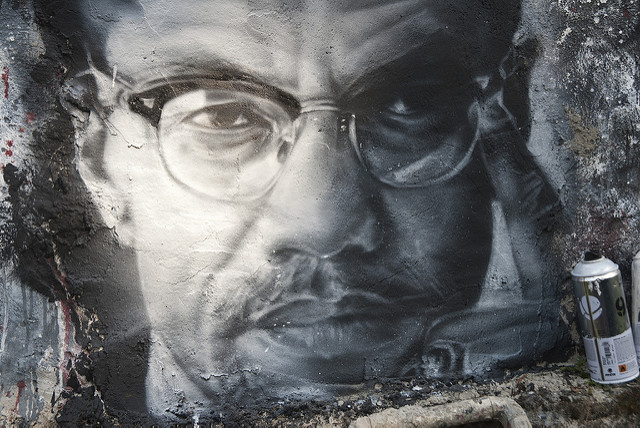
“Privileged people always feel excluded in equality movements because it’s the first time they don’t have the loudest voice.” ~ @NBroyalty
Just because we don’t talk about it, doesn’t mean that it will go away.
Issues of racial equality have pulled at me for some time, but, just like with religion and God, I was taught we shouldn’t talk about race—let alone point out that differences in skin color exist.
But, what I’ve learned is that not pointing out these differences doesn’t make things better and that there is a difference between using conversations about race to try and divide our country versus using it as a tool to help bring all of us closer.
The latter is what I have and will continue to try to do.
Whether I understand the big picture right now or not is inconsequential because I know that one of my purposes is to speak up about the things that matter, because if we all keep living under the guise that it’s someone else’s responsibility to do so—then the fact is no one will.
This past year, I’ve let myself be pulled in the direction my heart wanted to go and for the first time I didn’t silence myself because of stereotypes of how I should think or act.
I’ve spoken up and written about race, the Black Lives Matter movement and other issues involving equality—but it wasn’t always easy to do so.
Someone told me once after reading one of these pieces that I won’t be able to change the world, because people will always be like that. Honestly, for the little light-bringer inside of me, it broke my heart.
Because even if one person reads these words, considers them, shares them and maybe thinks differently about things, then my soul’s mission was a success.
While equality in every aspect of life is important to me, I am called to the historical aspect of how it relates to black culture in the United States. But I also realized this year that it’s not enough to simply be interested in something if I am going to make a difference, I need to delve into it so that I really see both sides of a story that I wasn’t raised within.
I’ve traveled this year, both geographically and through historical and contemporary literature about slavery and what it means to be black in the United States. I’ve stood inside of slave cabins, and walked through the square where 600,000 Africans were auctioned off as property. I’ve traveled the path of the Black Loyalists and visited the largest settlement of free blacks in the world outside of Africa at the time of post-American Revolutionary war in Birchtown, Nova Scotia.
Through these experiences, my mind has been stretched and even if I wanted it to, it will never be able to go back to the same dimensions it was even a year ago. I look at things inversely now. I view movies and television shows differently, not because I want to enflame issues of race, but because I finally see what it means to be born with white privilege.
I saw something recently that said it’s okay to have Black pride, Latino pride, and Asian pride but suddenly when you say White pride it’s seen as racism—but this just isn’t true. It’s not the pride of our racial background that is racism, but when we see it as supremacy.
We should all be proud of our history—both cultural and ethnic—but there is a line between embracing who we are, and thinking that we are somehow entitled or better because of it. The minute we start thinking that we are better than anyone else, is when we become what we have feared the most.
I have spoken to a large number of people after the presidential election who are afraid for what will happen to our country, and while that seems daunting, I think we are meant to have this experience as a nation.
Often times when things seem okay, it’s easier to pretend that they are. But now, what’s always been under the surface has now come to light, and because of that it’s becoming impossible to ignore.
There have always been issues of race in the United States—we are not the melting pot, because every single day those who aren’t white are reminded of their skin color.
Ever since slave owners began telling stories to dehumanize the black man in order to justify holding him captive for their own needs, we have as a nation been taught to fear the black man and the culture that he represents.
And until we understand that we haven’t come as far as our past civil rights leaders would have liked, we will never realize how far we can actually go—but it’s up to us to decide to wake up, and make the choice to not accept this history as our future.
We have to speak up about the things that matter and not be afraid of being the only one.
We have to look at our own ideas and feelings about race so that we might better understand how to act in such a way so that we can actually make a difference.
The thing is, no matter how bleak things seem after the election or the messages of hate that we’ve seen sprayed out over social media, it doesn’t mean things are hopeless—it just means we need you to speak up.
Hate never wins—even when it seems insurmountable.
But we all have to make the choice to not fall into the shadows where it’s comfortable, but to realize that nothing is going to get better unless we decide to make it that way.
We have to love one another.
And we have to make the choice to be the difference that we want to see.
“Let’s stop believing that our differences make us superior or inferior to one another.” ~ Unknown
~
Author: Kate Rose
Image: thierry ehrmann/Flickr; Tswi/Twitter
Editor: Katarina Tavčar










Read 26 comments and reply